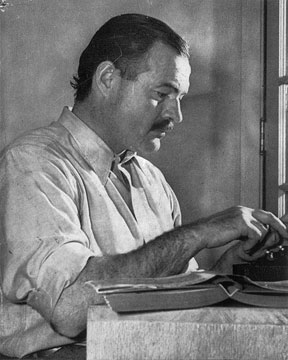Here’s a nice little post I found. A 22-year-old young man hitch hiked across the country to visit Hemingway in Key West. During the interesting visit, EH gave him a list of books that every writer should read.
Great or not, Peter the Great was great
 It’s not the first time it has happened. Twenty minutes in and we are all looking around at each other thinking, Why are we talking about this rabbit trail? Let’s start talking about the book for Pete’s sake. One of the opening issues was, Was Robert Massie, author of Peter the Great, offering a sympathetic history? Was he trying to shield Peter from too harsh judgment by contemporary readers? It was a good question. But like 14 hungry wildebeests salivating over a magnificent thirty-point stag, we plunged in ravenously and after twenty minutes were still scrabbling for the rack.
It’s not the first time it has happened. Twenty minutes in and we are all looking around at each other thinking, Why are we talking about this rabbit trail? Let’s start talking about the book for Pete’s sake. One of the opening issues was, Was Robert Massie, author of Peter the Great, offering a sympathetic history? Was he trying to shield Peter from too harsh judgment by contemporary readers? It was a good question. But like 14 hungry wildebeests salivating over a magnificent thirty-point stag, we plunged in ravenously and after twenty minutes were still scrabbling for the rack.
Once things got going, there was universal agreement that, whether Peter’s harsh reforms, justice, warfare and taxation were pardonable or not, Robert Massie’s book was a spectacularly interesting read, and nobody complained about the 850 pages. Rather, most of us found it hard to put the book down. Stunning descriptions of life in the 17th and 18th centuries, suspenseful battle sequences and jaw-dropping accounts of Peter’s sheer, balls-to-the-wall, kick-assery were told with a novelists skill. No wonder the book won the Pulitzer.
Memorable events from Randy’s essay (accessible from the sidebar) include the Revolt of the Streltzy, incognito travels in Europe, Holland and the shipyards, Gordon, LeFort and the Jolly Company, Menshikov, Catherine the peasant girl that became Peter’s mistress, th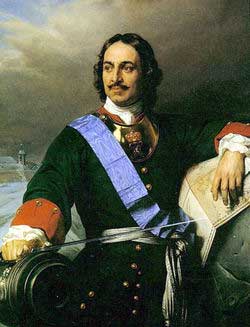 en wife, then successor, the construction of St. Petersburg, Charles XII, the Sultan’s harems and eunuchs, and the trial and death of Peter’s son Alexis.
en wife, then successor, the construction of St. Petersburg, Charles XII, the Sultan’s harems and eunuchs, and the trial and death of Peter’s son Alexis.
Add to that the shocking accounts of the brutality of the 17th century, torture and executions, the state of women’s lives in Russia when Peter was born, the unfathomable cold, misery and hunger suffered especially by Charles’ armies in 1708, and you have something close to an epic. And we all appreciated Massie’s detours when necessary, to explain the back story on some nation or geography or cultural artifact.
As someone pointed out, our world would be very different if not for Tsar Peter’s influence on Russia, Europe and ultimately the world.
The excitement did not end with the book discussion. There were perhaps more books proposed than ever before, and with a large group of people voting there was a three-way tie. A tie-breaker vote yielded a two-way tie. And a final tie-breaker of 6 votes to 7 left us with Orson Scott Card’s Ender’s Game as the book for July.
The book for June is The War of the End of the World, by Llosa.
Note: there are a couple of pics of Russian locations in the menus on the left.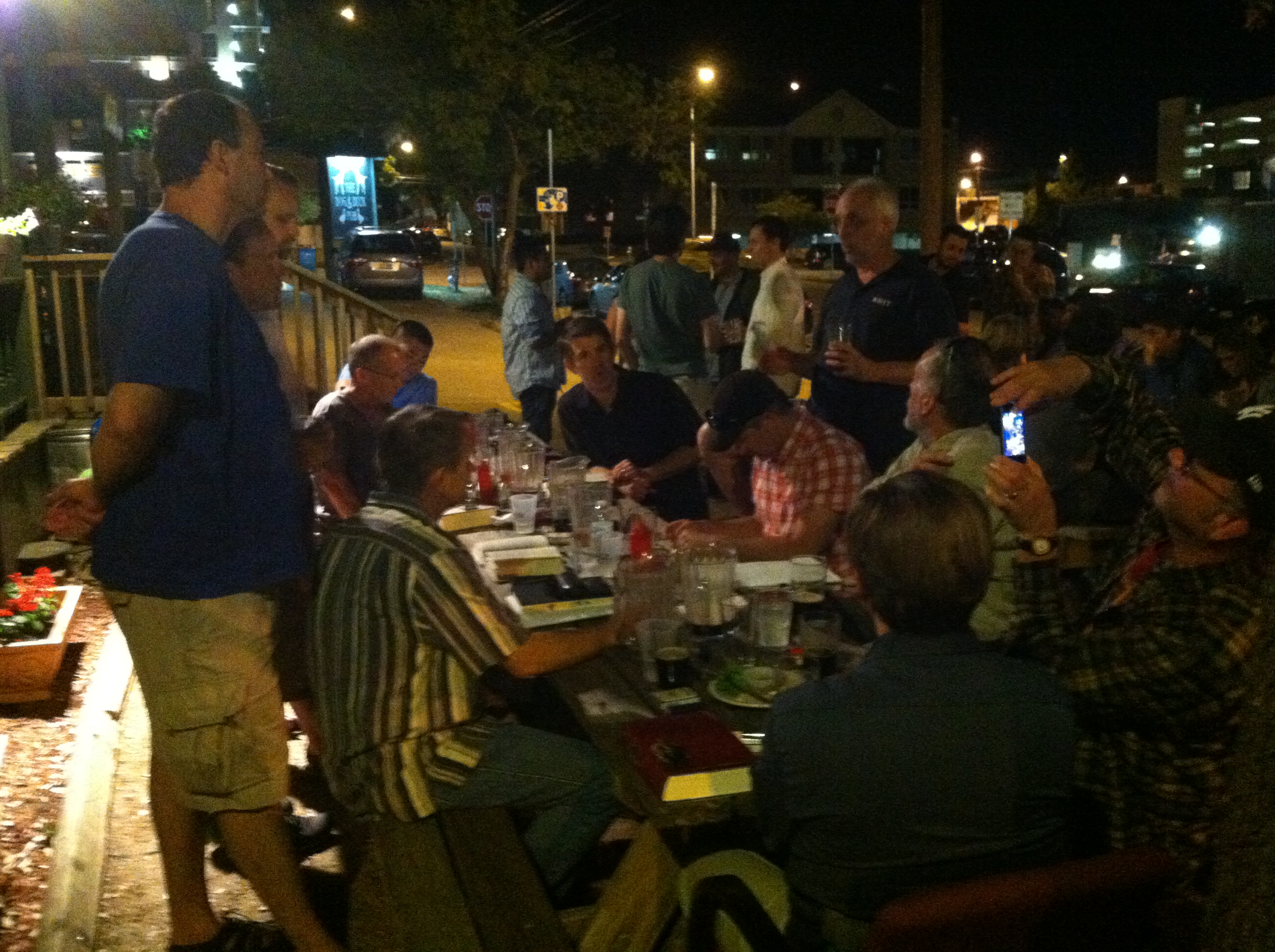
Morrison channels Faulkner – Song of Solomon
If some among us were lukewarm toward Toni Morrison before, having read only Beloved, virtually all became enthusiastic fans after reading Song of Solomon and the discussion last Saturday.
Our first book by Morrison had mixed reviews by our group, though still mostly positive. Nevertheless, I think some felt a little too much black-oppression-in-your-face about Beloved that compromised the pure enjoyment of the book. Song of Solomon, however, was free of ‘black angst’ as someone put it, and permitted us to simply relish the book, marvel at the similarities to Faulkner and gain a strong, new respect for Toni Morrison.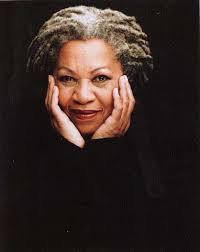
We quickly observed her use of names: Milkman, Pilate, First Corinthians, Magdelene called Lena, Guitar, Hagar, Hospital Tommy, Railroad Tommy, Empire State. The surname ‘Dead’. We also enjoyed the setting – an unknown Michigan city, and Morrison’s own home state.
Her ability to weave together multiple symbols we found purely magical. She took us through a common human journey, the quest to find one’s identity and history. In the case of Milkman Dead, it was a history that was lost as it is for many black people who were given new identities by institutions and careless white administrators. Events and dialogue had an unsettled, slightly vague and quirky feel at times, again in a vein similar to Faulkner or Flannery O’Connor. Artifacts such as the peacock, the bones in the bag, and the cave were delightful puzzles to try and solve.
We discussed in the most detail the scene with Circe in the old decrepit house, the love scene with Sweet, the nature of Guitar and the “Seven Days'” vengeance against injustice. And right out of the gate, we started wrestling over the meaning of the ending – did Milkman die? Jump off a cliff? Was he shot by Guitar? Did he really fly away? And why did Morrison end the book that way? The most obvious link is to the opening scene where Robert Smith is jumping from the roof of the Mercy Hospital. And of course, Milkman’s great grandfather Solomon is said to have flown to Africa, to an even earlier, richer history. But the question of the ending was never settled.
We agreed that Morrison’s talent as a writer is immense, her achievements are of the highest order (Nobel, Pulitzer, Presidential Medal of Freedom) and that she deserves all the accolades she has received.
The book for May is Peter the Great, by Robert Massie (link in last month’s post).
June’s book will be The War of the End of the World by Mario Vargas Llosa. Some will be surprised to learn that this book is not science fiction but historical fiction, about the War of the Canudos in late 19th Century Brazil. I’m guessing the title is the exaggerated description of the experience of those in midst of the conflict. And, its not a short book – over 500 pages – but online review describe it as highly interesting and hard to put down.
The saddest story I ever heard
Since I wrote the essay on Ford Madox Ford’s The Good Soldier, I will not comment much here on the book. John created a pdf of some info about Ford’s family and influences which you can view here.
The book was my proposal, and the first book of mine to win the vote in over a year. And while I enjoyed the book very much and profited by it in my knowledge of history and the culture of British nobility, the general consensus was lukewarm toward it.
Why? From what we can figure, it was simply because it does not “stand the test of time” as the saying goes. It was probably great in its time but there wasn’t enough to keep everyone excited (except me of course).
Another disconnect was the culture in which the story took place. Many felt they could not relate with British nobility, their values, their priorities, their mannerisms and expectations. How is it possible, for example, for Edward to be unaware of where babies come from until 2 or 3 years into his marriage? How could Leonora facilitate the several mistresses her husband had?
There were at least two bits of excitement. First, a drunk guy backed into John’s car as we sat there and watched. He had 20 feet of space,but he just flew backward into the car while supposedly trying to park. It didn’t make sense. But as I said, we’re pretty sure the guy was wasted. There was no damage to John’s car though.
Also, a young employee…now, remember, we have been meeting at the Dog and Duck for 13 years…a kid who has been working there part time for around 8 months came out and fussed at us for having a small flask on the table. He told us not to bring alcohol to the bar. So next month we all need to bring several flasks, and tell that kid that we’ve been meeting there for our book club since he was in Junior High school, and he just needs to go back inside and wipe the counters.
After Toni Morrison’s Song of Solomon next month, we will read Peter the Great by Robert K. Massie
Percy goes dark
One way to describe the impressions of Walker Percy’s book Lancelot is to say that it seemed to be an example of how not to be, how not to conduct the search for meaning in the cosmos, how not to react to the craziness of the modern world.
Lance murders several people and burns down his house, and could be said to have been so reckless as to have has suicide in mind as well.
And he didn’t get the girl in the end, at least not to our knowledge. In fact, he seems to have offended her seriously enough by underestimating her mind that she refused him. But we are left with reason to hope that she will return and meet him wherever he plans to go (Virginia?) to start his new revolution.
Everyone loved the book. No nay-sayers this time. Although one potential nay-sayer was out of town for this meeting, so we don’t know.
Whoever’s book this was needs to send me their essay/notes or whatever you have so I can post it with the others. And if there are other members who have old essays that need to be put up for posterity, please send them to me. Thank you
Next book: Song of Solomon, by Toni Morrison
Last meeting of our 13th year
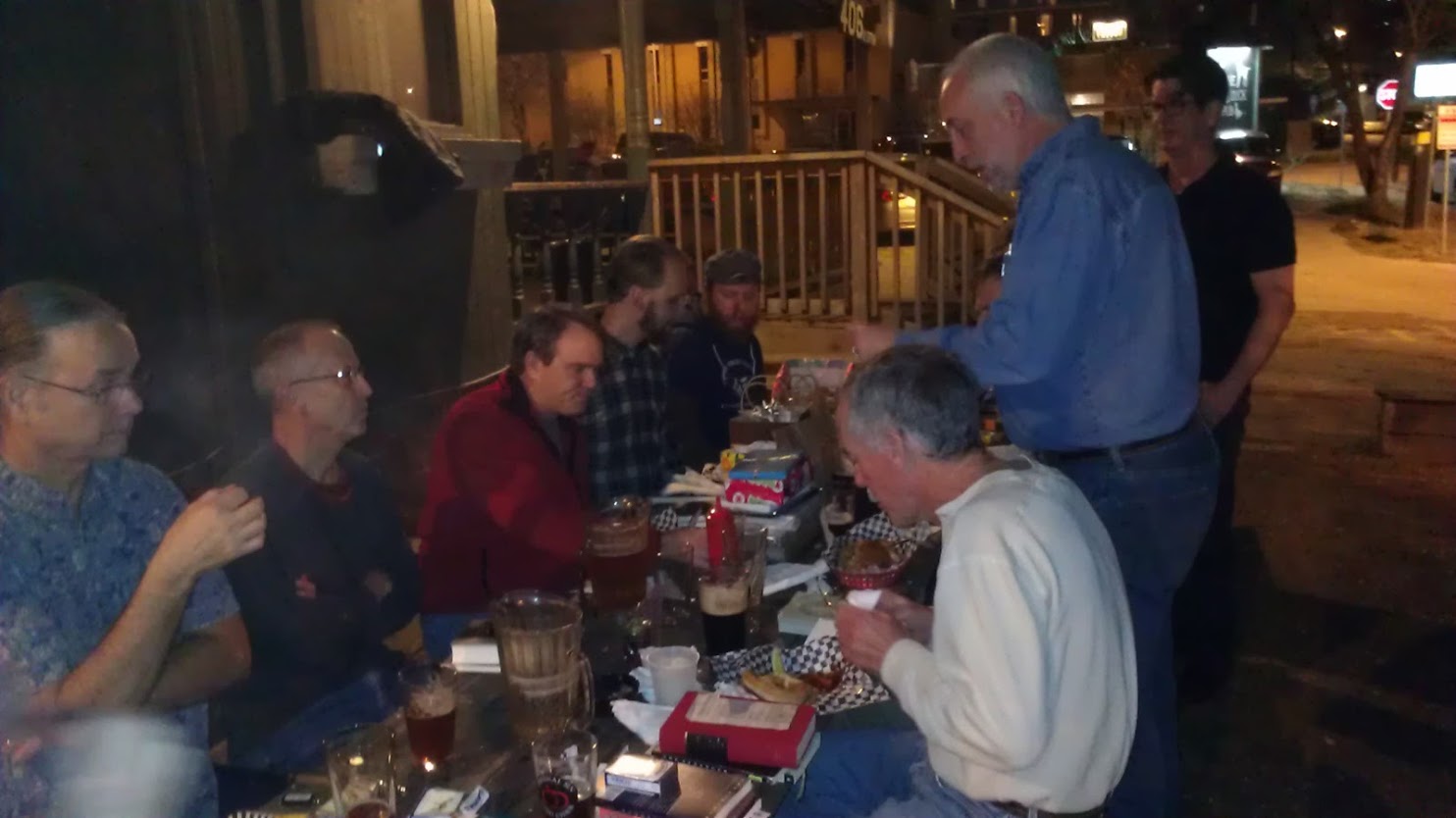 The reading for last night’s meeting was the oft-nominated “Camus Triptych” consisting of The Stranger, The Fall and The Myth of Sisyphus.
The reading for last night’s meeting was the oft-nominated “Camus Triptych” consisting of The Stranger, The Fall and The Myth of Sisyphus.
Close to record attendance with total count approximately 15 strout-hearted bibliophiles who endured soldiering on as the cold front blew in shortly after we began. Because it was the belated gift-exchange month one of our merry band brought a bottle of Knob Creek and some plastic cups. The bottle was emptied.
Discussion swirled around what Camus meant the reader to understand by the characters in his fiction. Only a little time was spent actually discussing Camus’ brand of Existentialism, and the spoken opinions about it ranged from fundamental disagreement to mild sympathy to the sense that it is a “dated” philosophical system. See Dr. Mack’s eloquent and informative essay in the sidebar.
Next books
For next month, we are reading Walker Percy’s Lancelot.
The following month the book is The Good Soldier by Ford Madox Ford.
